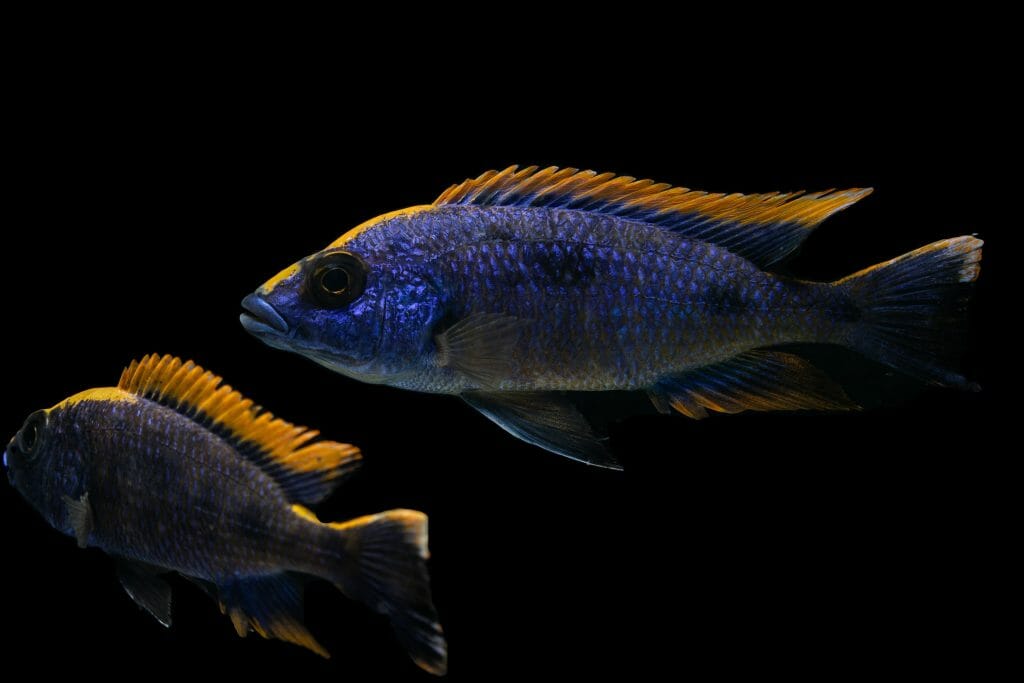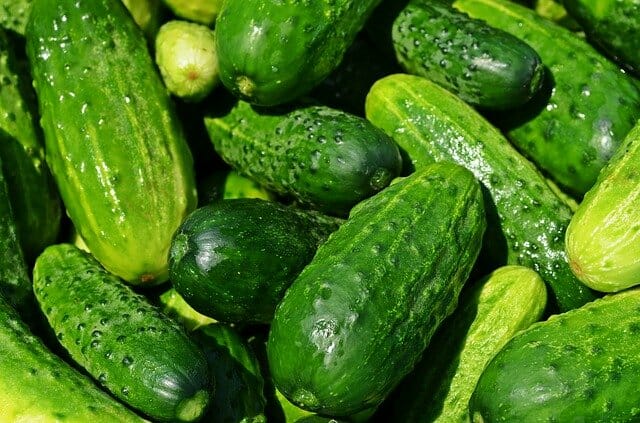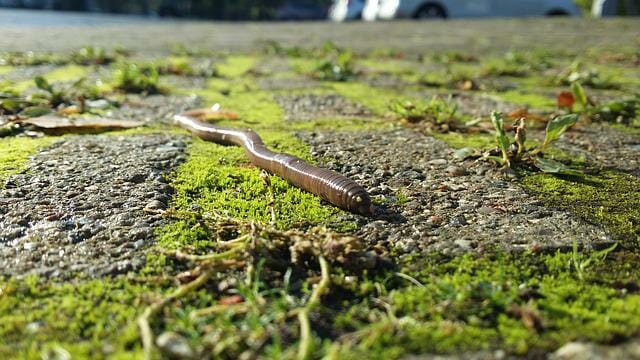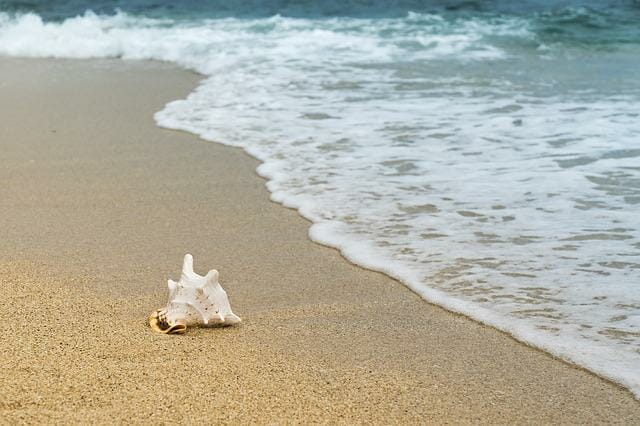What to Feed Peacock Cichlid: Vegetables, Live Food, Freeze-Dried Food, and Meaty Food

The peacock cichlid is a beautiful fish found in many different habitats worldwide. This cichlid is a popular aquarium fish, as it is hardy and easy to keep.
The essential diet for a peacock cichlid should consist of pellets, live foods, and vegetables. Pellets should be made out of various nutrients so your cichlid can get all the protein it needs. Live foods like worms and brine shrimp can also benefit your fish’s diet. Veggies such as spinach or aquatic plants can also be fed to your peacock cichlid as an occasional treat.
Table of Contents
Basic Food You Can Provide Your Peacock Cichlids
Since peacock cichlids are tropical fish, their diet should consist mainly of fresh, aquatic plants and insects. They will also eat small fish, crustaceans, and other invertebrates. Some good foods to give your peacock cichlid include bloodworms, daphnia, blackworms, mosquito larvae, and crickets.
Vegetables That Peacock Cichlids Can Eat
One of the most critical aspects of peafowl cichlid care is ensuring that your fish have a varied and nutritious diet. While most peacock cichlids will accept a variety of vegetables and fruits, some are particularly fond of particular types. Some examples include cucumbers, zucchini, watermelon, and mangos. Keep in mind that your fish will likely eat more than they need, so be sure to provide plenty of fresh food for them to enjoy.
Spirulina
Spirulina is a type of aquatic algae that can be fed to peafowl cichlids as part of their diet. Spirulina is high in protein, carbohydrates, and other vitamins and minerals, making it an essential supplement for your fish. Additionally, spirulina provides essential micro-nutrients that help keep your fish healthy. When feeding spirulina to your cichlid, dilute the food with fresh water.
Peas
One of the best things you can give your peafowl cichlid is a healthy diet of fresh peas. Peas are high in protein, vitamins, and minerals, which will help keep your fish healthy and strong. But, as with other vegetables, feed them to your fish in moderation – too much food will likely be gobbled up quickly by your cichlid.
Broccoli
Broccoli is another excellent source of vitamins, minerals, and protein for your peafowl cichlid. Like peas, broccoli is a healthy food that can help keep your fish healthy and strong. Feed broccoli to your cichlid in moderation.
Cucumber

Cucumbers are a great source of watery fruits and vegetables for your peafowl cichlid. Cucumbers are high in water content, making them beneficial to your fish’s diet. Feed them cucumbers in moderation.
Corn
Corn is one of the best vegetables to include in your peafowl cichlid’s diet. Corn is high in water content and provides antioxidant support and essential vitamins and minerals. While corn can be used on its own or with other vegetables, depending on what else you have at home alone may decide if adding this particular nutrient-rich food item makes sense — therefore, base any additions on personal preference!
Garlic
Garlic is an excellent addition to your peafowl cichlid’s diet. Garlic provides essential vitamins and minerals and protein, and other nutrients. You can feed garlic to your fish in moderation.
Zucchini
Zucchini is a perfect vegetable for your peafowl cichlid’s diet. Zucchini is high in water content, making it beneficial to your fish’s health. Additionally, zucchini provides essential micro-nutrients that help keep your fish healthy and strong. Feed zucchini to your cichlid in moderation.
Lettuce
Lettuce is the typical go-to vegetable for peafowl cichlids. Lettuce is high in fiber and water content, making it beneficial to your fish’s diet. Great lettuce choices are butterhead or romaine, iceberg, etc. They all help give great nutritional support to your fish!
Live Foods That Peacock Cichlids Can Eat
Mosquito Larvae
Mosquito larvae can be an excellent food item for your peafowl cichlid. Mosquito larvae are high in protein and provide essential nutrients your fish needs to grow and thrive. Feed mosquito larva to your cichlid in moderation as they contain small amounts of salt, which may not be suitable for the health of your fish.
Bloodworms
Bloodworms are high in protein but contain a mild amount of silica that may help. Feed bloodworms to your fish as they are high in water content and provide necessary nutrients for healthy cichlid growth and longevity!
Micro worms
In parts of the world, such as South America and Southern Africa, worm-like foods are called “micro worms.” Worms such as micro worms provide a great source of protein to your fish. The micro worm is high in essential nutrients that make up immunity in your diet of peafowl cichlids! Feed them sparingly on occasion if you wish, but they can be highly beneficial for spinach or lettuce-based diets.
Earthworms

Earthworms are an excellent choice for feeding their peafowl cichlid a more complete and varied diet. Earthworms provide essential nutrients that help keep your fish healthy, such as protein and vital minerals. Feed them sparingly as they can be high in salt content which may harm the health of your fish!
Freeze-Dried Foods to Feed Peacock Cichlids
Bloodworms
Freeze-dried bloodworms are high-quality food that provides essential nutrients for healthy cichlid growth and longevity. Bloodworms are low in salt content, making them a safe and easy choice for your peafowl cichlid’s diet. Feed freeze-dried bloodworms as part of a varied diet to provide the best possible nutrition for your fish!
Brine Shrimp
Brine shrimp are a great choice of food to feed your peafowl cichlid as they have numerous benefits. They contain essential nutrients, provide the necessary energy and protein needed by the fish, and increase the overall health and strength of your fish’s immune system while also keeping their metabolism up.
Krill
Krill is an excellent food to feed your peafowl cichlid because they are high in protein, essential nutrients, and low in salt. Krill provides energy for your fish and essential vitamins and minerals needed for healthy growth. Feed krill sparingly, only when necessary, as their high content of omega-3 fatty acids can benefit your fish’s health and increase the rate at which your cichlid proliferates and may out-grow their tanks.
Daphnia
Daphnia provides essential nutrients and energy needed to maintain a healthy diet. This microscopic crustacean is high in protein, which contributes to the health of your cichlid’s body as it grows!
Meaty Foods for Peacock Cichlids
Shrimp
Shrimp are a great source of protein and essential nutrients for your peafowl cichlid’s diet. They provide the ideal mix of nutrients, but shrimp also contain crucial Omega-3 fatty acids, which can help promote healthy skin and a robust immune system in your fish. Feed sparingly as their high calories content may cause your fish to over-eat and become overweight.
Fish
An excellent source of protein and essential nutrients, fish is also a great alternative to shrimp as they are lower in calories with much fewer pollutants. For example, fish such as tilapia have less fat than shrimp, which means your peafowl cichlid’s skin will be healthier while continuing their healthy diet!
Crabmeat
Crabmeat provides your fish with essential minerals and vitamins necessary for good health. Crab is an excellent source of protein, providing excellent value in getting the essential amino acids needed by all cichlids.
Mussels

Mussels are a high-quality protein source low in calories and rich in numerous essential nutrients. They contain high protein levels, but mussels are also an excellent source of quality vitamins and minerals, including zinc, chromium, potassium, and manganese.